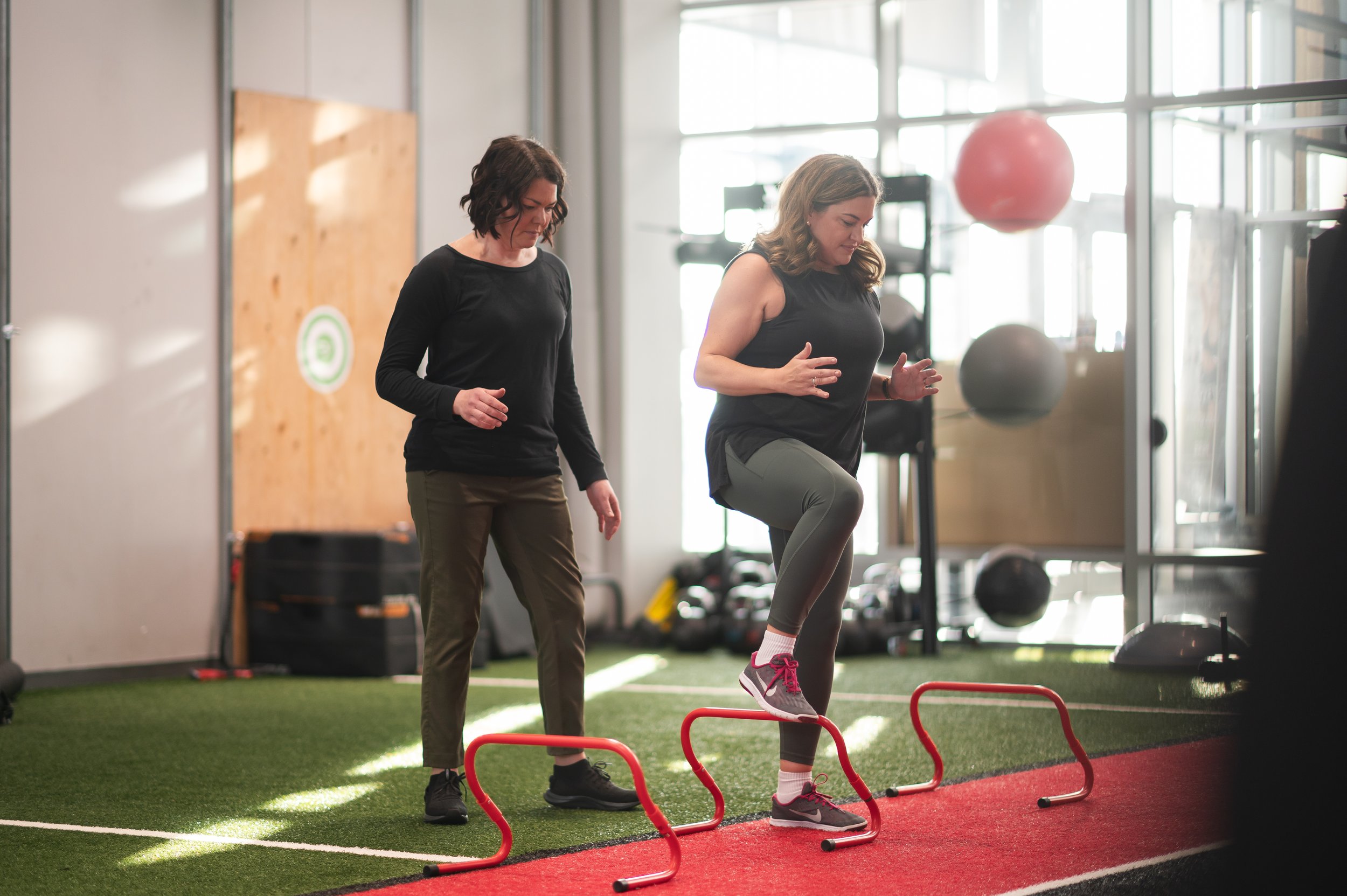Concussion: Do’s, Don’ts, and What Comes Next
Concussion has been a hot topic in the world of sport over the last 15 years. Assessment and treatment have changed significantly, and we are always getting smarter about how to best recover from head injury. But there is still a lot of outdated information out there and how are you supposed to know what to do when someone says the word concussion?
So what is a Concussion?
Concussion is a form of mild traumatic brain injury that creates a functional impairment but no structural changes; that means we don’t see anything on imaging but your brain isn’t working the way it is supposed to. You can get a concussion from a fall, a hit, or anything that causes the head to accelerate/decelerate quickly – you don’t have to hit your head directly.
What signs and symptoms should make you suspect a Concussion?
Look for a combination of some or all of the following:
Headaches
Dizziness
Cognitive changes – changes in how you think and process information
Balance issues
Vision changes
Physiological disturbances – unusual changes in heart rate, blood pressure, extreme fatigue, change in exercise tolerance
Mood or behavioural changes
If you suspect a concussion the athlete should be removed from play IMMEDIATELY, and not allowed to return until they have seen a concussion trained health care professional
When could it be MORE than a Concussion?
Go to hospital IMMEDIATELY if you experience any of the following signs:
Sudden drop attack/loss of consciousness
Seizure
Trouble speaking or swallowing
Weakness in arms or legs
Double vision
Pupils unequal or abnormally dilated
Vomiting
Headache that is intensifying suddenly
Recurrent bloody nose
Clear fluid leaking from the ears or nose
Bruising behind the ears
Persistent ringing in the ears
What do I do if I suspect I have a concussion?
Get assessed the day of the injury by a concussion-trained medical professional, if you can. If you get taken out of an event due to suspected concussion and can’t get assessed by a trained medical professional on site, consider going to Urgent Care or the Emergency Department.
Within the first 24-48 hours after injury: rest to help manage symptoms
o DO:
You are allowed to sleep – you should be cleared of more serious brain injury by a medical professional before sleeping. Consider asking someone to monitor you for the first 12-24 hours for those signs listed above that indicate it may be MORE than a concussion, but you are encouraged to sleep to help recovery from concussion.
You are allowed to do things that don’t increase your symptoms – you can socialize, read, listen to music, watch tv, walk, etc. as long as they don’t make your symptoms worse.
o DON’T
You should not go to school or work
Do not participate in sport
Do not play video games (too much ‘action’/stimulation)
Day 2/3: See a concussion-trained medical professional within 72 hours of injury to help guide your recovery. This is usually a physiotherapist, athletic therapist, chiropractor or medical doctor who has training in concussion management. Don’t assume all health care practitioners have concussion training - always ask.
Your chosen medical professional will then follow you through the steps of recovery. This includes return to school/work, as well as return to sport. Expect to return to school/work completely before you are able to return to competitive sport.
You should expect for recovery to take a minimum of two weeks in adults and four weeks in children and adolescents; and it is not unusual for it to take longer. Your brain needs to recover completely before you put it at risk of another injury, or you risk significant complications that can result in permanent impairments.
When can I return to my normal life?
Recovery is gradual, and you and your health care professional will work together to get back to each of your ‘normal’ activities appropriately. Pushing too hard, too fast, is likely to delay recovery. You should always get evaluated again before returning to sport to ensure complete recovery and safe return. If you return to sport, particularly contact sport, before your brain has recovered appropriately there is significant risk of complications, which can be severe and long lasting.
Although there is no structural change, Concussion is a brain injury. It can be a scary experience when your brain isn’t working the way you know it can, but with the appropriate care, recovery from concussion is possible!
If you need help recovering from you concussion, or you’re not sure what your next step is, click the link below. Let’s get you back to the things you love to do.
Post by Robyn Spencer, Sport Physiotherapist and Concussion Therapist

